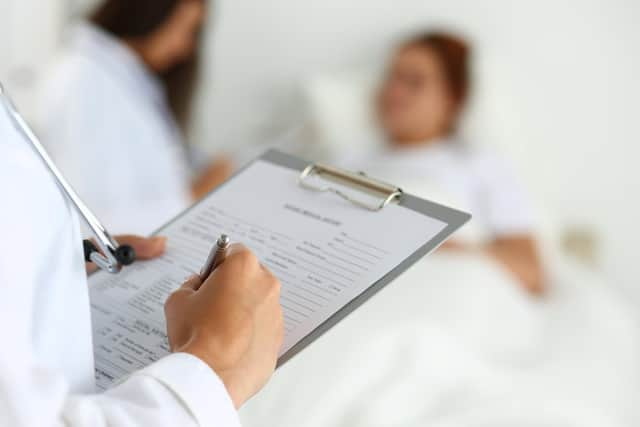On the Front Line: "It is doctors who diagnose you - not a test"


Many patients think that whilst the discussion with the doctor is useful, the examination is more important and it is the tests that really prove the diagnosis.
However it is usually the other way around. For example, a friend tells you every morning after drinking a bottle of wine, he wakes up with the same headache. Do you think a medical examination or scan is needed?
Advertisement
Hide AdAdvertisement
Hide AdThe truth is we all use symptoms to diagnoses simple conditions in life. It is only when the symptoms don’t fit the familiar pattern that we need to get extra help.


Similarly most people using ‘examination’ can diagnose spots in a teenager, or man who develops ‘baldness’. The idea of wanting a test to confirm this is would seem bizarre.
GPs have this kind of familiarity with patterns of symptoms in 1000s of conditions, so they can often be certain without a test.
Sometimes, when the discussion and examination alone is not enough, we need to use tests.
Advertisement
Hide AdAdvertisement
Hide AdSadly tests don’t usually tell us if you have a condition or not. They only tell us if it more or less likely. If a woman had every symptom of a urine infection, I would not usually need a test to help me diagnose this.
However, if she had only one symptom, the urine test gives more information to help with the diagnosis.
No single symptom or test alone is reliable. They all work together to change the probability. So if she had no symptoms of a urine infection, the test would be useless.
Because most tests are imperfect, unnecessary testing can give misleading results. So tests should only be organised when the result of the test will make a difference to what should happen next.
Advertisement
Hide AdAdvertisement
Hide AdSo, be open to the idea that doctors can diagnose some conditions over the phone or without tests.
If you have concerns about a doctor doing this, it is good to raise it with them.
Sometimes tests do have an important role. However it is not usually the tests that diagnose you, but the doctor who puts all in the information together.